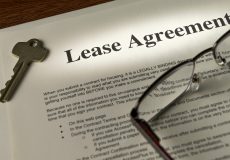Shareholders Agreement Lawyers NSW
Before we start drafting the shareholders agreement we get our clients to consider a range of issues that can arise between shareholders, with a view to them agreeing on how these issues will be dealt with in the shareholders agreement. We don’t have any part in this process other than to highlight the common issues.
Once they’ve agreed on the issues they want dealt with in the shareholders agreement, and how to deal with them, we then proceed to prepare a first draft of the shareholders agreement.
We then massage this draft into the final form of the shareholders agreement and arrange for all shareholders to sign it.
If this sounds like the kind of service you were looking for, please give our Business Team a call or send us an enquiry using the form at the bottom of this page.
Do shareholders in a company need to have a shareholders agreement?
“I say yes, but that’s just my opinion… ultimately it is a matter for the shareholders as there is no legal requirement to have a written shareholders agreement.
The reason I say yes, is because a well thought out and drafted shareholders agreement, can save shareholders from a lot of uncertainty by providing clarity as to the rights and obligations of the shareholders as between each other. Not having such a shareholders agreement, in my opinion, doesn’t pass the sleep test the uncertainty created by not having one is likely eventually, to keep you awake at night.”
– Gavin Hanrahan, Partner
Shareholders Agreement Checklist
Your typical shareholders’ agreement will deal with:
There are a range of issues that can arise between shareholders, and which should be considered for inclusion in any shareholders agreement. Some of these include:
1. Unexpected Exit
The agreement can set out what happens if a shareholder dies or becomes totally and permanently disabled for work. These issues are often not adequately dealt with in shareholders agreements. For example, a well-considered and drafted shareholders agreement might in appropriate circumstances, provide that on the death of a shareholder, their shares are purchased using the proceeds of a life insurance policy over the deceased shareholder’s life. Such an arrangement averts a major cash flow problem for the surviving shareholders and enables the deceased’s family to quickly be paid proper value for the shares.
2. Shareholder Funding & Contributions
The agreement can specify, in detail, exactly how the shareholders fund the acquisition of their respective shares. People can acquire shares in a company in various ways, so it’s important to outline these clearly. The most common way is cash funding, whereby the shareholder purchases shares using cash. Another example is employees acquiring shares via a loyalty program, which rewards them for long service.
3. Director Appointments
The agreement can specify, in detail, the shareholders rights in relation to appointing Directors (if any). This includes any conditions that negate those rights, for example, if the shareholding drops below a specified percentage. This section can also include provisions to stop shareholders removing another shareholder’s appointed Director.
4. Decision Making, Management, Obligations & Information
This section forms the bulk of the shareholder agreement and is considered to be the most important. It covers how the company is going to be managed moving forward and all related shareholder obligations. The agreement can specify, in detail, how all types of management decisions are to be made, i.e. whether specific decisions require a majority (50%), special (75%) or unanimous (100%) vote of approval.
Getting this balance right can be a difficult and complex process that could have severe consequences.
For example, unanimous decisions are sometimes useful because they ensure the opinion of minority shareholders is not ignored, however, this can also lead to a lengthy and costly decision making process. This is why we recommend you seek legal advice from an experienced business lawyer, as this section of the agreement has the potential to make or break a company.
The obligations of the shareholders also need to be specified in detail, so each shareholder is clear on what is required of them and what their level of commitment should be. This includes their rights with respect to what information they can and should be accessing, i.e. financial reports.
5. Dividends & Financing
The agreement can specify, in detail, the circumstances that lead to shareholders being paid dividends. This includes whether or not past shareholder contributions need to be repaid first. This section can also include broad terms that outline any rights shareholders might have with respect to further funding for the company, before the company seeks additional external funding.
6. Transfer of Shares
This is a critical section of any shareholder agreement. It details the rights and processes that relate to the transference of shares among shareholders. This includes outlining what happens in the event that a shareholder no longer wants to participate in the management of the company.
7. Exit Strategy
The agreement can specify, in detail, an exit strategy. This includes what happens in the event of a buy-out, sale of business and listing. In addition, it details what happens in the event that a shareholder exits the company.
See Also: Exit Provision
8. Deadlocks & Disputes
The agreement can specify, in detail, what happens in the event of a deadlock or dispute (i.e. a decision that cannot be resolved).
There are numerous ways in which deadlocks and disputes can be handled within a shareholder agreement and there is no “right” solution.
It depends on the circumstances surrounding the company, which is why seeking the assistance of an experienced business lawyer is so crucial.
See Also: Deadlock Clause
Is there a standard shareholders agreement template I can use?
Yes. Do we recommend using one? No.
Standard shareholders’ agreement templates can be found online via a quick search on Google. However, these basic templates are written with generic terms and conditions that are unclear, generalised and ambiguous. If you use one of these templates you run the risk of the agreement being unenforceable. Watch the video above for more information.
 Liability limited by a scheme approved under Professional Standards Legislation
Liability limited by a scheme approved under Professional Standards Legislation























